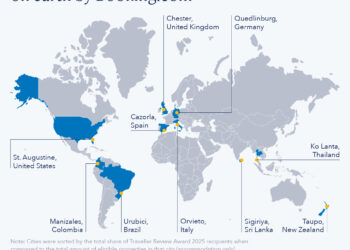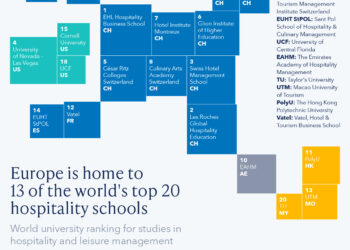The Driving Forces Behind Australian Hoteliers’ Use of Online Travel Platforms
In today’s fast-paced digital world, the hospitality industry is continuously evolving, especially in Australia. Hoteliers are increasingly turning to online travel platforms to boost their business performance and streamline their operations. According to the latest insights from the 2024 Australian Accommodation Barometer, conducted by Statista in collaboration with Booking.com, we can identify the key motivations that drive Australian hoteliers to embrace these platforms.
The Top Motivation: More Bookings
The Quest for Higher Occupancy Rates
One of the primary motivations for Australian hoteliers using online travel platforms is the urgent need to increase bookings. A significant 83% of hotel executives and managers identified gaining more bookings as their foremost reason for engaging with these digital resources. In an industry where occupancy rates directly correlate with profitability, hoteliers are actively seeking new channels to reach potential guests.
Strategies for Maximizing Visibility
To capitalize on online travel platforms, many hoteliers adopt strategies that enhance their property’s visibility. This includes optimizing their listings with high-quality images, engaging descriptions, and favorable pricing. By increasing their online footprint, they aim to attract not only local guests but also international visitors.
Attracting International Visitors
Expanding the Customer Base
Another important motivation highlighted in the Barometer is the desire to attract international visitors. As the tourism landscape becomes increasingly competitive, hoteliers recognize the need to appeal to a global audience. This not only enriches the guest experience but also diversifies their revenue stream.
Tailoring Marketing Strategies
To effectively target international travelers, many hoteliers are customizing their marketing strategies on online travel platforms. By understanding the preferences and behaviors of different visitor segments, they can tailor their promotions and offers to better meet the expectations of foreign tourists.
Simplifying the Booking Process
Enhancing User Experience
The ability to simplify the booking process is a significant motivation for hoteliers utilizing online travel platforms. An intuitive, user-friendly interface on these platforms can make a world of difference in a guest’s decision-making process. Guests are more likely to complete a booking when the process is seamless and straightforward.
The Role of Technology in Streamlining Operations
Hoteliers are also leveraging technology to streamline their operations further, ensuring that the booking process not only caters to customer preferences but also aligns with the hotel’s internal workflows. Automation tools and integrated systems can enhance efficiency both in managing bookings and in providing excellent customer service.
The Importance of Data and Insights
Utilizing Analytics to Drive Decision-Making
The data gathered from online travel platforms is more than just numbers; it’s a vital resource that can guide decision-making processes for hoteliers. Insights into customer behavior, market trends, and booking patterns can help accommodation providers refine their offerings and strategies.
Adapting to Market Demands
By analyzing this data, hoteliers can adapt to changing market demands and position themselves effectively against competitors. This proactive approach is crucial in a dynamic travel landscape where consumer preferences are constantly evolving.
Conclusion
The current trends in the Australian accommodation sector reveal that online travel platforms play a pivotal role in the strategic planning of hoteliers. By focusing on increasing bookings, attracting international guests, simplifying the booking experience, and leveraging data-driven insights, Australian hoteliers are setting themselves up for success in a highly competitive environment. These motivations not only reflect the current state of the hospitality industry but also highlight the potential for growth and innovation in the future.





